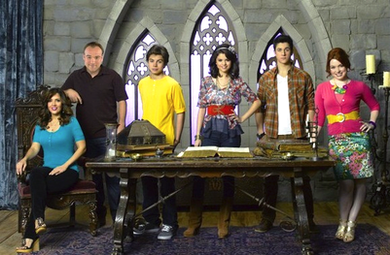- The Festival of Frugality #278 The Pure Peer Pressure Edition is up. All of your friends are reading it. http://bit.ly/aqkn4K #
- RT @princewally: Happy StarWars Day!: princewally's world http://goo.gl/fb/rLWAA #
- Money Hacks Carnival #114 – Hollywood Edition http://bit.ly/dxU86w (via @nerdwallet) #
- I am the #1 google hit for "charisma weee". Awesome. #
Property Managers
As of last Monday, we don’t have any tenants in our rental house.

That makes me sad.
It makes me sadder that we were too nice and gave them an extra week free to get their stuff moved out.
Now we get the fun job of painting, replacing the linoleum, and probably cleaning the place up to get it ready for new renters that we haven’t found yet.
New renters.
Ick.
Now, we could put an ad on Craigslist and try to find renters ourselves.
Background checks.
Credit checks.
Interviews and walk-throughs.
Then, when we find someone, we’ll be collecting rent and dealing with any whiny issues that come up.
Yuck.
Or….
We can hire a property manager. The big name property management company in our area charges a $99 set-up fee plus $80 per month.
That covers:
- Rent collection
- Coordinating maintenance
- Accounting
- All of the other mundane details
If we add on the tenant-finding service, we’ll be paying them one-month’s rent, but they’ll handle the showings, advertising, background checks, and the lease. And their average tenant placement is 19 days. Another house in the neighborhood that used them had the house rented in about a week.
That moves our landlording firmly into the passive side-hustle category and all it costs us is (essentially) one and a half month’s rent with the added bonus that we’ll be asking the right amount for rent according to the market, instead of guessing. Our last tenants were probably paying $300 too little.
I think the property managers are the way to go, but I have absolutely no experience here.
Have any of you used a property manager? Was it good? Bad? Hell-on-Earth?
Selena Gomez: Can Child Stars Make It As Adults?
Selena Gomez is no longer the innocent yet rebellious Alex from Disney’s hit show Wizards of Waverly Place. In fact, the quirky and wholesome child star who was beloved by so many young women has now become a scantily

clad pop star that is singing risque lyrics to her on again off again pop star boyfriend Justin Beiber. Her transition to adult stardom has not been an easy one, and many believe that her role in “Spring Breakers” is a sign that she has officially entered adulthood and kissed her teen-friendly role preference in the past. But unlike other famous Disney child stars like Lindsey Lohan and Britney Spears, Gomez has had a relatively smooth path to adult stardom with only minor bumps in the road. But many people are asking themselves whether or not child stars can actually make it as adults, or whether their career is over once their cute phase stages.
Child stars are aware of the fact that they are always being watched. They become the idols of their young fans, and these young idols rely a lot on their cuteness to become a celebrity. But transitioning from a cute kid to a talented adult actor can be a difficult feat. Not only does the star have to earn a new fan base, they also must find a new identity and decide which types of roles they are willing to take now that they are a mature adult able to make their own decisions. Sometimes, even children who do not fall into the drug and alcohol trap, find it difficult when they are given control of their own careers without their guardian’s rules.
The Public is Less Receptive to a Child Star Turned Adult Star
Die hard Wizards of Waverly Place will always see Selena Gomez as the lovable yet comedic Alex Russo. While this was her most popular role, it is the role that will makes her transition into more mature roles difficult. The public is less receptive to an adult Selena Gomez, clad in bra tops and short shorts, because they do not realize that she has matured. When the public shuns a child star for taking on more adult roles, the star simply is not sought after for movies and sitcoms. Young female child stars tend to be judged much more than their male counterparts. In fact, Justin Timberlake and Ryan Gosling are both very successful in the acting scene, and they were both Mouseketeers.
It is possible for a child star to make it as a adult, but the person must have thick skin and be prepared for a publicly criticized transition. Many child stars simply choose to retire once they have outgrown the ability to take on youthful roles, and others are not mentally prepared for the scrutiny they will face. Ultimately, a child star can have a successful career in stardom as an adult if the public is ready for the transition.
Getting Out of Bed

- Image by Wha’ppen via Flickr
Why do you get out of bed in the morning? Is it so you can exercise the privilege of spending 8 hours in a cubicle?
I didn’t think so.
In Okinawa, it’s call the ikigai. In Costa Rica, it’s the plan de vida. It’s your sense of purpose–the reason you get out of bed in the morning. In these cultures, having a strong ikigai can be directly correlated to a statistically extreme lifespan*. All around the world, the plan de vida is the single factor most likely to cause someone to feel they have lived a fulfilled life.
Do you know your ikigai?
For some people, their plan de vida is to successfully raise their children, then their grandchildren. For others, it is charity. Some folks are serial entrepreneurs, always looking for the next deal, the next business. For still others, it is a collection or an urge to travel. There are even some whose sole reason for getting out of bed(other than potty breaks) is work.
The last category is most common with teachers, soldiers, and police. The problem with wrapping so much of your identity up in your profession is retirement. What do you do when your ikigai–your reason to wake up–goes away? In Okinawa, teachers and police tend to have very short retirements because they lose their reason to for living.
What is your plan de vida, your passion? What drives you to keep going? Do you live to write, or to raise your children? Do you <shudder> live solely for someone else’s happiness? When you find it, it will resonate as “this is you”. Finding it is a deep soul-searching, not a light-hearted explanation or a new fad.
Your reasons can, and should, change over time. You can’t live for raising your children years after they have grown up and moved away. Finding this one factor in your life can be the thing that leaves you on your deathbed looking back with a smile instead of regret.
What is your plan de vida?
* From The Blue Zones: Lessons for Living Longer From the People Who’ve Lived the Longest
My Net Worth
While I find it fascinating to read about other people’s net worth, I’ve never bothered to figure out my own. With the start of the new year, I thought it would be fun to do. This is me, upping my personal transparency bar.
Assets
- House: $255,400. Estimated market value according to the county tax assessor.
- Cars: $23,445. Kelly Blue Book suggested retail value for both of our vehicles and my motorcycle.
- Checking accounts: $2,974. I have accounts spread across three banks.
- Savings accounts: $4,779. I have savings accounts spread across a few banks. This does not include my kids’ accounts, even though they are in my name. This includes every savings goal I have at the moment.
- CDs: $1,095. I consider this a part of my emergency fund.
- IRAs: $11,172 (Do you know your IRA contribution limits? Do you have a Roth IRA?)
- Total: $298,865
Liabilities
- Mortgage: $33,978
- Car loan: $1,226. This will be paid off this month.
- Credit card: $23,524. This is the next target of my debt snowball.
- Total: $58,728
Overall: $240,137
Update: I wrote and scheduled this before I paid off my car loan.
Breaking Bad: The Economics of Meth

In AMC’s “Breaking Bad,” Walter White plays the role of chemistry teacher turned meth producer and drug kingpin. While it certainly makes for good television to think about the profits available to someone willing to trade in illegal drugs, the mountain of money that Walter makes by the end of the series is actually not that unrealistic. Meth has a street value that approaches $30,000 dollars per pound. Not only that, but Walter displays a deceptively keen business acumen, especially for a chemistry teacher. A number of keen decisions allowed Walter White to become as successful as he has.
Production Costs
As any business owner knows, merchandise costs are a major portion of any operating budget. Mr. White keeps his profit margins robust in a number of ways. The first of these is by managing his production costs. When he started out in the business, Walter simply stole the majority of the required chemicals from the high school where he worked. This allowed for the product to be sold at a substantial profit when compared to producers who are required to invest more upfront.
Location, Location, Location
On top of his discounted production, Walter was able to stay ahead of the competition both literally and figuratively by utilizing his RV for production. Typically, meth is produced in a laboratory environment, which requires a building. This adds an additional cost of rent to the typical business profile. Walter, on the other hand, produced out of his RV in the early stages of his business’ growth, further increasing his profit margin.
Distribution
On the production side of the economy, a major consideration is distribution costs. While most of Walter’s competition used pricey, established lines of distribution for their products, he cut out the middle man by distributing his product with his team. This caused major disruptions to his business when his competitors tried to kill him. However, while he was able to accomplish this model, Walter was the beneficiary of increased profits. Then, when he killed his competition, he was able to return to the healthy margin he enjoyed previously.
Advertising
Many new products are launched with a full blown media campaign. This is a costly proposition. Walter, instead, relied on the quality of his product to speak for itself. This competitive advantage reduced the need for an extensive advertising budget. Furthermore, after a period of time, his product became a preferred choice by consumers everywhere. While he was required to distribute a few loss leaders at times, Walter kept the advertising costs down and profited greatly.
So, while it may seem like Walter White was simply a chemistry teacher who got lucky, it’s clear that he actually had a specific plan for his upstart business. By following a few standard economic principles, he was able to increase his margins at the crucial beginning phase of his business, and had established himself as a leader in the market when he chose to expand





